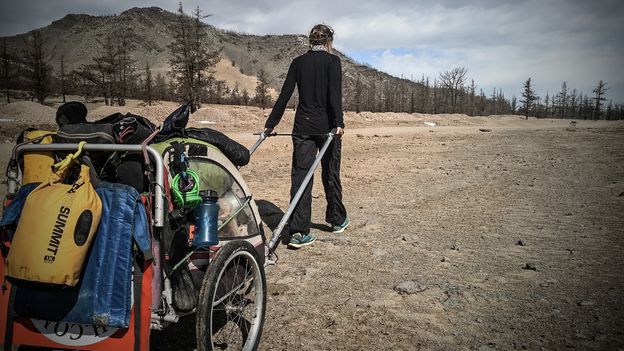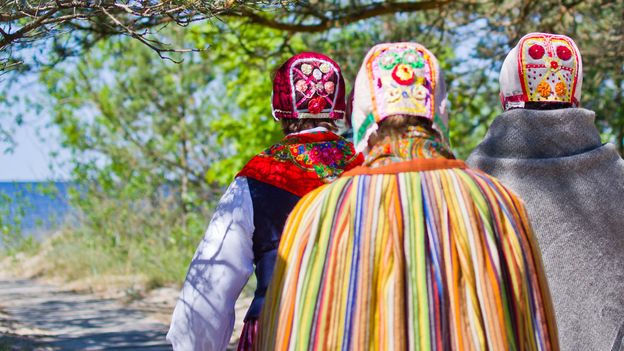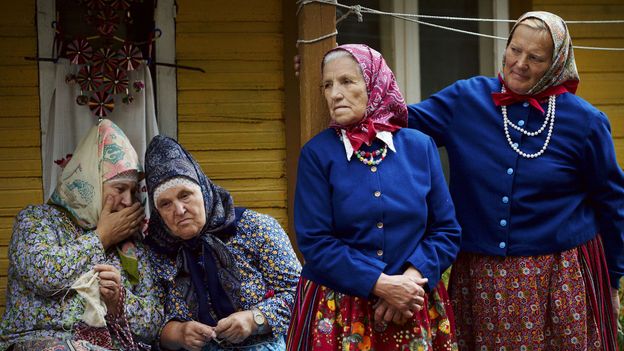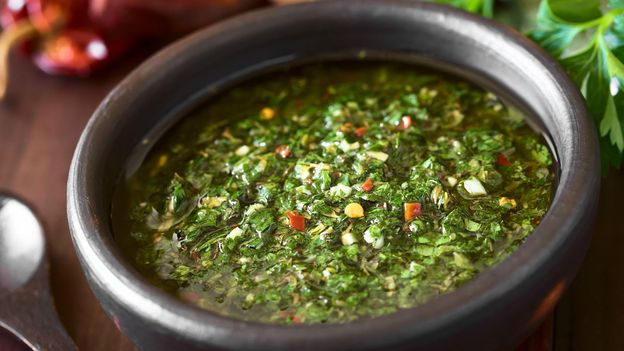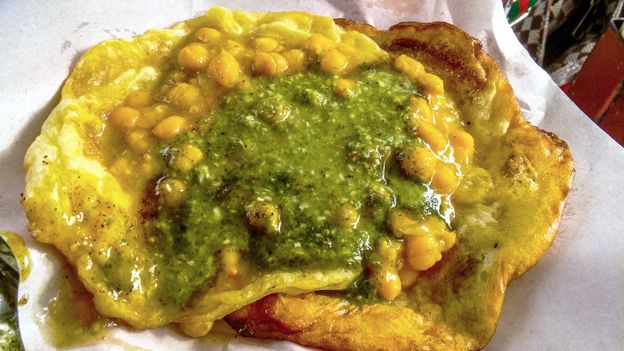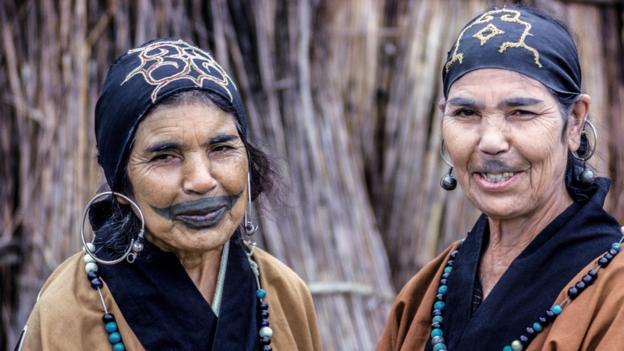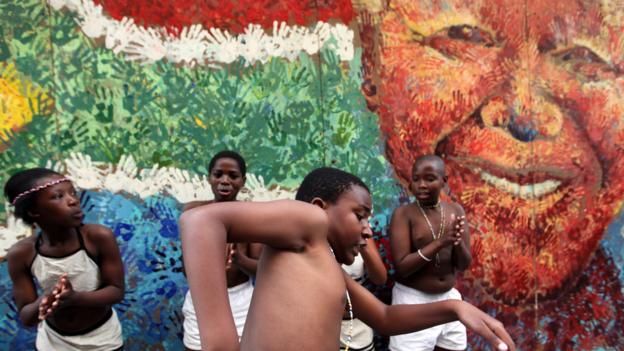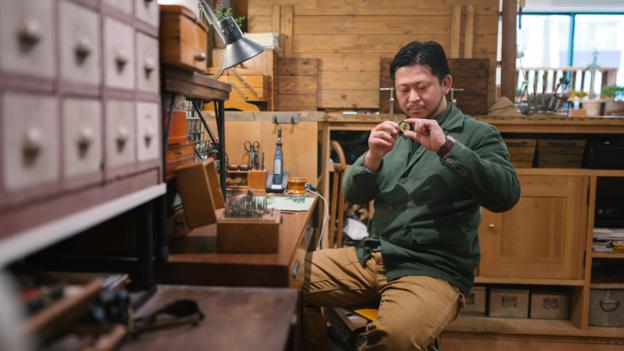As you enter the mountainous village of Pera Melana in Greece’s southern Peloponnese peninsula, you’re likely to hear the roar of scooters zooming down narrow roads and the chirps of birds stealing ripe fruit from trees. But if you approach the village’s central cafe, you’ll hear a rather unusual sound. It’s the buzz of conversations among elders in a 3,000-year-old language called Tsakonika.
The speakers are the linguistic descendants of ancient Sparta, the iconic Greek city-state, and part of a rich cultural heritage and population called Tsakonian.
Thomais Kounia, known as the “empress of Tsakonika” for her mastery of the language, tells her friend about the bread she baked that morning, but my Greek translator cannot understand her. Instead, Kounia translates for him in Greek, and he then tells me, like a game of Chinese whispers. I am in awe. These ladies are some of the last fluent speakers of one of the world’s oldest living languages.
It is the only continuous legacy of the ancient Spartans and one of the oldest languages in Europe
Today, only about 2,000 of the 10,000 Tsakonians, primarily elders, still speak Tsakonika at all, and the language is limited to 13 towns, villages and hamlets located around Pera Melana. While Greek is the region’s official language, Tsakonika is often spoken at home and casually in public here. Yet, its future remains uncertain.
“We are losing Tsakonika without authentic teachers,” said Kounia. “I have been trying to preserve it for the last 40 years. It is my duty to do so.”
BBC Travel · A conversation in Tsakonika
Tsakonika isn’t just important to the identity and culture of Tsakonians, it is the only continuous legacy of the ancient Spartans. It’s also the oldest living language in Greece – predating modern Greek by about 3,100 years – and one of the oldest languages in Europe.
When we go to Sparta, it feels like home
“If we lose our language, we cannot claim to be Tsakonian,” explained Eleni Manou, a Tsakonika teacher and author in the nearby town of Leonidio, the de facto capitol of Tsakonia.
Tsakonika is based on the Doric language spoken by the ancient Spartans and it is the only remaining dialect from the western Doric branch of Hellenic languages. In contrast, Greek descends from the Ionic and Attic dialects on the eastern branch. While each of these use a similar alphabet, Tsakonika has more phonetic symbols and differs in structure and pronunciation. Unsurprisingly, Tsakonika is closer to ancient than modern Greek, but none of these languages are mutually intelligible.
A famous Tsakonika-like phrase was coined by Leonidas I, king of the Spartans, in 480 BC in the Battle of Thermoplae when he led 300 of his men and about 1,000 other Greeks in a fight against up to 500,000 Persians. Given the mismatched forces, the Persian commander demanded that Leonidas surrender all weapons or die. Leonidas replied in Laconian, “Come and get them!”
Laconian was the Doric dialect spoken in the Spartan state of Laconia, and by the Middle Ages, it became known as Tsakonian or Tsakonika.
“Tsakonika is the main proof of our Spartan connection,” Manou noted. “And in terms of the heart, we are direct descendants. For me and many other Tsakonians, when we go to Sparta, it feels like home.”
Though Pera Melana and the other villages where Tsakonika is still spoken lie about 55 to 100km north-east of ancient Sparta, their geographical distance from the capital that once ruled them has actually helped preserve the language. After the Visigoths sacked Sparta in 396AD, the city was eventually abandoned and the remaining Spartans fled and settled in these mountainous areas. Over the centuries, Tsakonika was preserved in these isolated farming communities that quietly passed the language down from generation to generation. These communities remained relatively secluded until after the Greek War of Independence (1821-29), which gave rise to mass education and improved infrastructure.
You may also be interested in:
• Greece’s disappearing whistled language
• The re-discovery of a long-lost Greek city
• The Greek island luring climate scientists
“The building of roads and ports gave people a way out of villages,” Kounia said. “Many residents never returned.”
In the 1950s, the introduction of electricity in all Tsakonian villages and exposure to national broadcast media further connected residents to the outside world. Many also moved to other countries to look for better job opportunities. One of them was Panos Marneris, now a Tsakonika teacher, poet and songwriter who runs the language website Tsakonika.
“Up to 1970, when I left for the United States, Tyros and other villages in the area where I grew up spoke 100% Tsakonika,” he said. “But each year I returned to visit, more and more people weren’t speaking it and that bothered me. The road from Astros to Leonidio was built in 1958. Twenty years later, people stopped speaking Tsakonika.”
About 5,000 people still spoke Tsakonika in the late 1950s, according to Manou. But this number declined by more than half in subsequent decades as modern Greek became the national language in 1976 and outside teachers came to Tsakonia to teach it. Moreover, Tsakonika was stigmatised as a “peasant language”. As a result, Manou’s father, who was a native speaker, refused to teach Tsakonika to her because he deemed it unnecessary and shameful. In fact, his generation largely suppressed it with their children – a decision many now regret, as Tsakonika is listed as a “critically endangered” language by Unesco.
Until the 1990s, Tsakonika was still taught alongside Greek in some local schools, but then it became solely optional. Nowadays, there are hardly any schools left in these aging villages because so few children live there.
“Only 12 children live in my village today,” Kounia said. “It’s a big problem without a younger generation to pass along the language.”
BBC Travel · The difference between ancient Tsakonika and modern Greek
While Tsakonika’s long-term viability remains in doubt, its past stigma is long gone.
“In the 1960s-70s, there was an attitude change about Tsakonika as something to treasure rather than hide,” Manou said. “In fact, a lot of young Tsakonians were angry with their parents and grandparents for not speaking Tsakonika to them. I was begging my father to speak it to my children, but he refused. Now it’s fashionable with the younger generation.”
Today, teachers, philologists and politicians are eagerly trying to revive the language. At a minimum, they are giving Tsakonika the respect it deserves as the language of King Leonidas rather than peasants.
In Leonidio, bilingual signs in Tsakonika and Greek welcome visitors. One proudly states: “Our language is Tsakonika. Ask people to speak it to you.” Tsakonika is also featured in the town’s Tsakonian museum; in the Tskakonian Archives, a heritage club founded in 1954 to preserve written Tsakonika; and at the annual Melitzazz festival each summer. The latter features Tsakonian music, dance, carpet weaving, stone architecture and a sweet, local variety of eggplant.
The word ‘laconic’ comes from Laconia, whose inhabitants were known for verbal brevity and pithy phrases.
“Today it’s an embarrassment if you don’t speak Tsakonika,” noted Haralambos Lysikatos, the mayor of South Kynouria in Leonidio, who is very proud of his Tsakonian heritage. “It’s my dream to have most Tsakonians speak it.”
Historically, Tsakonika was an oral language; per their austere, simple way of life, the Dorians used language only out of necessity and did not write anything down. In fact, the word “laconic” comes from Laconia, whose inhabitants were known for verbal brevity and pithy phrases. So, there are relatively few Tsakonian words – an estimated 8,000 to 10,000, compared to up to five million in modern Greek.
“That’s why there is no Tsakonian literature,” said Maxim Kisilier, head of the Department of Byzantine and Modern Greek Studies at Saint Petersburg State University in Russia, who is hailed by Tsakonians as one of its best speakers. “But there are expressions of love.”
“It’s quality over quantity with words in Tsakonika,” Kounia joked.
The bigger challenge is preserving the language in writing
Lack of vocabulary isn’t a problem as Tsakonika borrows words it doesn’t have from Greek and even a handful from French. The bigger challenge is preserving the language in writing.
“Tsakonika has very special phonetics and it is hard to write down typographically,” Kisilier said.
The best effort to date is a three-volume dictionary published by Kounia’s uncle in 1986. Now several speakers are looking to update and republish it online. The municipalities of South and North Kynouria and the Tsakonian Archives morally support this initiative but lack the funds to do it.
“What is not written fades away,” noted Tsakonika author Sotiris Steniotis, who has started compiling words for a new Tsakonika dictionary. “In this era of information with the internet, we should not lose a language. Every Tsakonian village should have a Tsakonika centre for its residents and Tsakonika classes should be offered in Sparta and Athens.”
Petris Dimitris, mayor of Prastos, intends to create such a centre in an abandoned tavern in his nearly deserted village. Currently, only the Tsakonian Archives and a few other locations offer in-person Tsakonika classes.
This year, Covid-19 inspired Manou to offer Tsakonika lessons online for the first time, opening up a big opportunity to expand teaching. She also hopes to start a regional radio show to unite Tsakonika-speaking areas. The digital revolution has even hit the dusty Tsakonian Archives, which aims to back up all of its Tsakonika publications digitally.
“More people must get involved, especially young people – I plead with them to get involved – to preserve this language,” Marneris urged.
In the hearts of Tsakonians, their language will survive, but it will be a difficult battle. Modern, digital dictionaries may save the last words of the ancient Spartans, but only if, as Leonidas would say, Tsakonians “come and get them!
Join more than three million BBC Travel fans by liking us on Facebook, or follow us on Twitter and Instagram.
If you liked this story, sign up for the weekly bbc.com features newsletter called “The Essential List”. A handpicked selection of stories from BBC Future, Culture, Worklife and Travel, delivered to your inbox every Friday.



